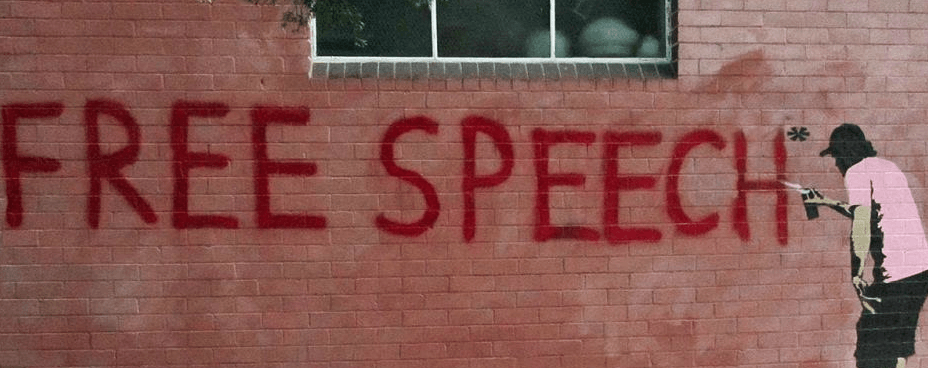Political clubs have a right to freedom of speech
3 min read
Australian Broadcasting Corporation
By HANNAH ROTHWELL
Staff Writer
On Thursday, February 15, the UMW Firearms club painted the spirit rock on campus to advertise their concealed carry and personal safety classes. Later that day, their message was spray painted over and covered with a message about school shootings in response to the one that had just occurred in Florida that same day. It is unknown who painted over the rock. This has sparked a massive debate on campus about not only firearms, but free speech as a whole.
Their president, Natalie Johns, doesn’t see this action as representative of the campus community as a whole.
“People enjoy (or at least have no opinion) that the club exists, if that wasn’t the case than people wouldn’t come to their meetings and events,” although she admits that it has faced some backlash since its inception last fall.
They are not the only club that has experienced this type of opposition. The Students for Life club has experienced similar incidents in which their chalked advertisements on the sidewalks were washed away or covered up. These incidents indicate that the UMW community, which prides itself on diversity and inclusion, has a history of censoring viewpoints that dissent from the norm.
This silencing of the opposition is harmful, not only to the ones who are silenced, but to the community as a whole. Diversity is a good thing. It introduces people to other people and viewpoints that they wouldn’t normally have interacted with, and allows them to put a face to what would otherwise be an idea. When one side’s view of the other side is informed not by the other side, but by what our side believes about them, anyone holding differing ideas becomes a caricature rather than a person. It’s easier to bash caricatures of the other side than to actually engage in a productive and respectful dialogue.
Take firearms for example. It is an incredibly controversial topic, especially in the wake of the latest shooting. Both sides tend to have rather negative views of the other. It’s common to see gun rights activists presented as people who are unnecessarily obsessed with owning guns just for the sake of having them, and as being completely blind to the dangers that firearms can cause. It’s also common to see gun control activists presented as anxious and reactionary people who have never touched a gun in their lives and are overly controlling of something that they don’t understand. Obviously, both sides would disagree with how they are portrayed by the other, but the best way to change this portrayal is to genuinely talk to the other side and try to understand how they see themselves. It seems that happens far less frequently than it should.
By having the firearms club on campus, people on both sides of the issue are able to interact with the people who hold the beliefs of the opposing side. They are able to see that the people on the other side are not the crazy caricatures that are often portrayed as, but rather they are fellow students, neighbors, and friends. They are rational people who have made informed decisions, and come to different conclusions. Having fellow students represent an opposing viewpoint provides the opportunity to ask how those conclusions were arrived at, and engage in a productive and informed dialogue going forward.
Without representation of a wide range of thoughts and beliefs, communities run the risk of becoming echo chambers. While those communities may feel comforting from the inside, they aren’t representative of society as a whole. By seeing and interacting with people with diverse backgrounds and ideas, it becomes easier to understand that not everyone who disagrees is necessarily bad or wrong. This is a necessary step to understanding the ideas they hold. When the person who disagrees with you is in your classes and on your hall, it becomes harder to dismiss them as completely irrational. Having ample representation of controversial beliefs on campus will allow the students of UMW to break down barriers, build bridges, and better understand the other members of their community.


